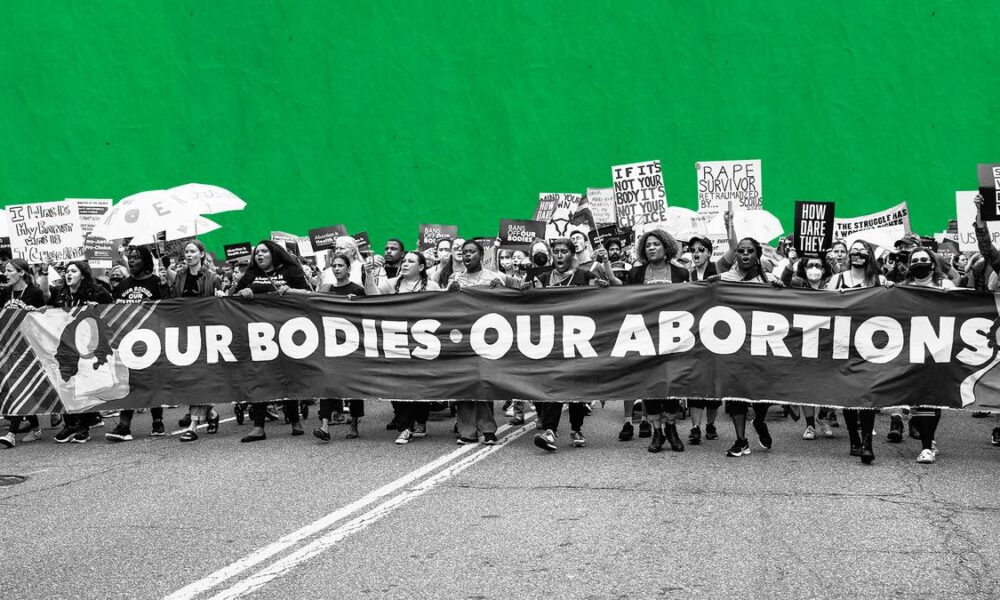CW: discussion of reproductive violence, racism, violence towards Indigenous people
It has been over one month since the Supreme Court of the United States overturned the constitutional right to an abortion. Since then, the abortion debate is the loudest it’s been since the 1973 Roe v. Wade ruling: Anti-abortion activists are revelling in the decision while pro-choice supporters are mobilizing to protect whatever is left of safe reproductive care in the U.S.
This hands-on battle, however, is tainted with racist, transphobic, and exclusive language. Approaching the abortion ban as solely a women’s issue reflects a narrow understanding of the ongoing struggle against reproductive injustice, often faced by people of marginalized gender identities. How we talk about abortion matters, and the way the abortion debate is unfolding in the U.S. should serve as a warning to pro-choice supporters in Canada for how not to go about their advocacy.
Discussions around abortion often focus exclusively on womanhood and assumes that all women are cisgender and that only they need abortions. This is both incorrect and exclusionary. Womanhood, or gender more broadly, is not dependent on reproductive organs, and an insistence on making the abortion debate about womanhood misrepresents the realities of pregnancy across the gender spectrum.
The language we use shapes how we understand an issue, how we mobilize around it, and eventually, how we write policy. If officials writing reproductive care policy only focus on women, their efforts will inevitably neglect the health care needs of queer and trans people. Obsessions over the so-called erasure of women echo the rhetoric of mainstream feminism from the 1970s that actively excluded Black, Latine, Indigenous, and queer people from discussions about their rights to bodily autonomy. The irony!
White feminism also manifests itself in the public discourse that says restricting abortion access is a step back in time. Quebec Premier François Legault echoed this sentiment when he stated that the Supreme Court’s overturning of Roe v. Wade was a “sad setback”. Despite the seemingly unprecedented panic raised by white feminists, restrictive and oppressive control of bodily autonomy and reproductive rights is not a thing of the past. Many Black and Indigenous people have not been granted a “choice” when it comes to family planning. The recent discovery of hundreds of unmarked graves of Indigenous children in residential schools, the forced sterilization of Black and Indigenous people, and the racist medical abuse in the name of “experimentation” on Black people by white doctors is proof of it. A linear understanding of reproductive rights is perhaps accurate for white cisgender women but not for all who are affected by anti-abortion legislation.
The way the abortion debate is unfolding in the U.S. is an opportunity for activists in Canada to reflect on and ultimately change how we talk about abortion. Feminists must center the concerns of queer, racialized, disabled, and working class individuals who will bear the disproportionate brunt of abortion bans. As much as this is a time for grief and recovery, it is also an opportunity to reshape the pro-choice movement without using the same exclusionary tactics that stripped the right to an abortion in the first place. Mainstream understandings of gender are changing and the language about abortion should reflect the work of queer activists of colour who continue to shape feminist mobilization. Benefitting from their labour and then excluding them from the conversation they helped raise will de-radicalize a movement that seeks liberation at its core.
Playing by the rulebook of white feminism is not the answer. It is a fear-based response and a reflection of a scarcity mindset that says there is not room for everyone in activism. The sooner we embrace the power of difference, the more powerful the movement becomes.








